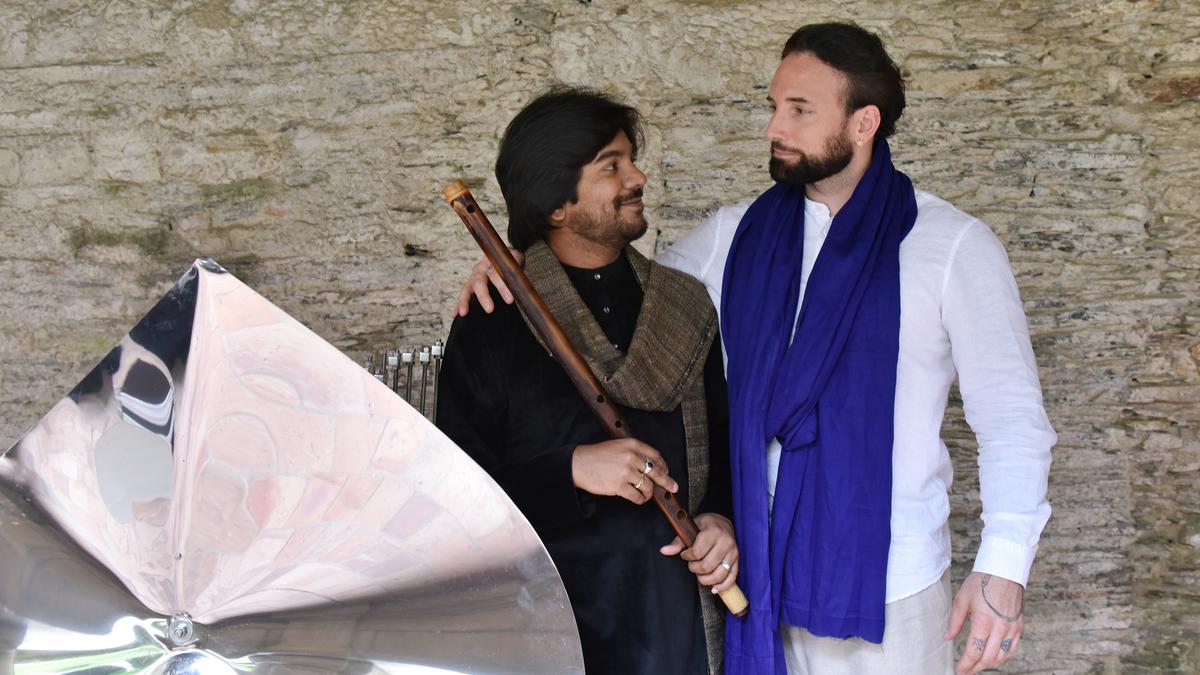
Carnatic flautist Jayant performs an unusual collaborative concert at Theatre de la Ville
The Hindu
Jayant plays at the prestigious Theatre de la Ville
Over the decades, Theatre de la Ville in Paris has come to be recognised as one of the prestigious venues for classical arts concerts. Most of well known from across the globe have performed on its stage at some point in their careers. Young Carnatic flautist J.A. Jayanth and French cristal baschet artiste Loup Barrow presented a collaborative performance here recently.
The auditorium has seats in straight rows on three levels, emulating the boxes of older auditorium design. The audience, mostly French, seemed curious about the coming together of two artistes from different continents, playing instruments, which belong two different genres. It was heartwarming to see the thunderous applause they received at the concert. It continued even after the performers had left the stage, forcing them to return and play an additional piece. It was Mangalam in raga Brindavani Sarang. Jayant said, “this is out of the syllabus for us”.
Jayanth started the concert with Madhyamavati, a five-note simple structured taga that has an equivalent in the Hindustani tradition, and is perceived as being easier to understand by an audience that is not familiar with the Indian raga system. After playing a brief alapana, during which Jayant deftly switched among five flutes, including a longer bass flute, he moved on to the composition. He skilfully kept his performance concise, showcasing different blowing techniques. Sai Giridhar on the mridangam was an able collaborator, making the laya passages racy and exciting. The exchange between flute and mridangam was interesting too. After this 30-minute piece, Loup joined the duo on stage, and played a brief solo on his unusual instrument, the cristal baschet.
Invented in 1952 in Paris, the instrument is a version of an organ, that uses chromatically tuned glass rods that are rubbed to produce a rich sound, which is further amplified by a large shining metal disc called flame. While the instrument looks impressive with dominant presence on the stage, the range of sound it can produce is limited, confined to lingering on notes rather than executing a prolonged tune.
According to Loup, “What’s special about this musical meet is the uniqueness of the sound and the vibration. The cristal baschet rests on the complex rhythms and melodies played by the flute; they intertwine to create a totally original sound, with no boundaries.”
The next piece featured both Loup and Jayanth together playing a chord; the wistful completion of the sounds of the cristal baschet by the flute was most enchanting and haunting.
Next was raga Mohanam with the inclusion of the mridangam; with Loup following the flute this time. The cristal baschet trying to keep pace with the fast rhythm of the flute was not so enthralling. The concluding piece in raga Kathanakuthuhalam, again a raga structured more like a western chord and easy to play also ended in a fast laya pattern.













